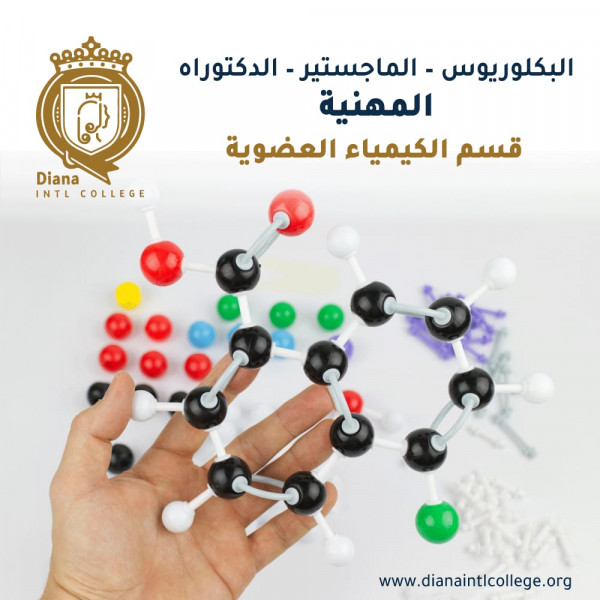Department of Organic Chemistry

Program hubs:
1- Structure and the bonds that bind molecules together:
Chemical bonding is a constant attraction between molecules, and the bonds vary greatly among them: strong, weak ones. In this theme, we will examine the following:
- Atomic theory
- Chemical links
- Molecular bonding
- Covalent polar associations (acids and rules)
2. Hydrocarbons: They are compounds made up of carbon and hydrogen only, and are an important source of energy on which man depends, and the simplest of their compounds are gasoline and gas. Together, we will study this the following:
- Alkanes
- Alkanes and chemical properties
- Freons
- Alkines
- PH factor
- Preparing alkines
- Alkines reactions
- Turbines
- Alkaynes
- Preparing alkaynes
- Alkaynes reactions
3. Organic reactions: Organic reactions involve chemical reactions that are reactive and are organic compounds, often called by the names of their discoverers. Together, we will study this axis:
- Substitution Reactions
- Addition Reactions
- Ellimination Reactions
4. Spectroscopy: An analysis of light emitted or reflected in any material by spectrometer, where each material has a special spectrum that does not correspond to any other material. We'll study this theme:
- Nuclear MRI spectroscopy
- Comprehensive spectroscopy
- Infrared spectroscopy
- Ultraviolet spectroscopy
5. Benzene: The discovery of benzene was the first seed of the emergence of organic chemistry and is considered the simplest part of aromatic organic chemistry, the primary compound of hydrocarbon aramaic compounds. We'll study this theme:
- Gasoline and aromatic
- Benzene chemistry (electrolytioric replacement)

